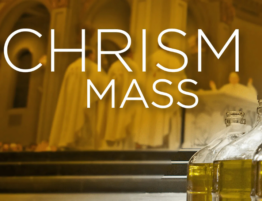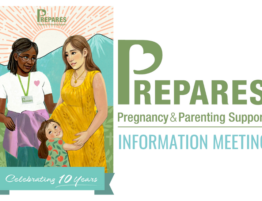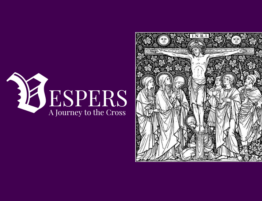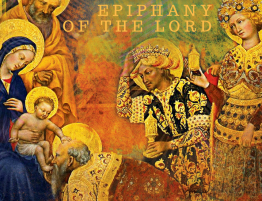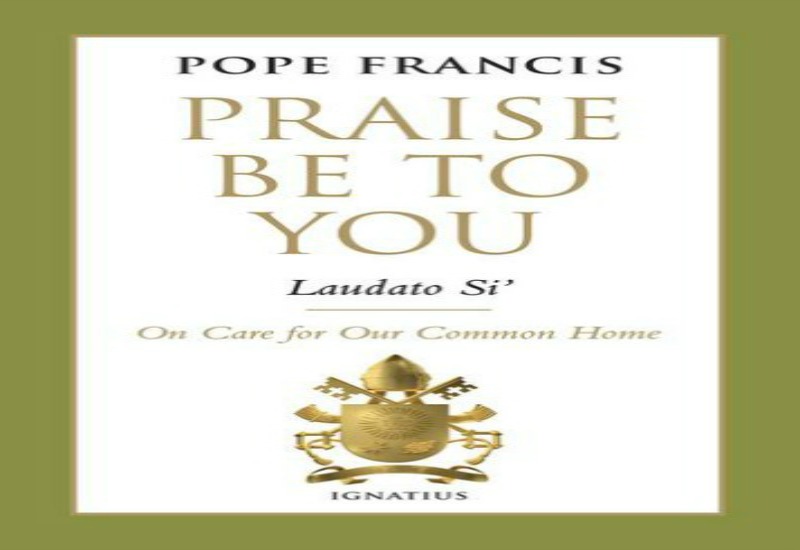
You might be asking what is Laudato Si? What does the encyclical letter from Pope Francis tell us? We have compiled a few statements and resources that will help you understand Laudato Si— the encyclical letter that shares how we “Care for our Common Home”.
Laudato Si—Care for Our Common Home is the new appeal from Pope Francis addressed to “every person living on this planet” for an inclusive dialogue about how we are shaping the future of our planet. Pope Francis calls the Church and the world to acknowledge the urgency of our environmental challenges and to join him in embarking on a new path. This encyclical is written with both hope and resolve, looking to our common future with candor and humility states the USCCB.
Read the new encyclical letter Laudato Si.
LAUDATO SI: The Archbishop’s Remarks
Archbishop J. Peter Sartain says this regarding Pope Francis’s encyclical letter Laudato Si (Praise Be):
“In his encyclical letter, Laudato Si, Pope Francis has put a human face on the issue of ecology and caring for creation. This teaching document, which is consistent with the teaching of his predecessor, Pope Benedict XVI and other recent popes, is an urgent call to Christians, people of other faith traditions and those of no faith to protect our earthly home and our brothers and sisters who inhabit it.
As the title makes clear, the pope’s letter praises God for the gift of creation and reminds us that every human person is a part of creation, with inherent dignity and deserving of our respect and care. To understand this better we need, as Pope Francis states, an “integral ecology” that recognizes the relationship not only between human beings and nature, but also with God, with ourselves and other human beings.
We here in the Northwest live in an area of incredible natural diversity and beauty, so we are especially grateful to the Holy Father for raising awareness about the need to “care for our common home.” We should also be mindful that his encyclical letter challenges us to recognize that our individual decisions often have far-reaching consequences for the natural world and for other people, most especially the poor. As we answer the pope’s call to action, I urge everyone to join with him in giving grateful praise to our loving God for the great gift of creation.”
LAUDATO SI: Questions & Answers
1. What’s new in Laudato si’ (LS)? What’s in this document that we have not seen from the Church before?
The document is a call to conversion and action. While Laudato si’ fits perfectly within Catholic tradition, it is saying with new force that concern for the environment is no longer “optional” for a believer. Caring for the environment is now even more clearly and surely part of Church teaching.
2. Why does the Pope pay little attention to the population problem?
LS acknowledges that population density can be a complicating factor in some areas. But people are not the problem. Waste is a much bigger problem: our throwaway culture and our tendency to consume without reflecting on our real needs, both material and spiritual.
3. The Encyclical seems to make technology and finance enemies. Isn’t that a bit simplistic, even retrograde?
Technology and the financial markets can be wonderful instruments, as long as they are serving human beings, enhancing human dignity, as opposed to making relatively few very rich and a lot of people slaves. This calls for honest debate. What constitutes real technological progress? Where does it help human dignity, but where does it degrade it? Or financial markets: are they helping to spread the wealth? Are they helping to bring people out of poverty?
4. LS argues against fossil fuels. And yet cheap energy has done a lot to lift the poor out of poverty. Does the Pope want to deny them that possibility?
No. The Pope wants the wealthy nations, and those that have polluted more, to cut back on fossil fuels. He argues that alternative energy is available for all. But that requires solidarity: wealthy nations sharing their profits, helping the poorer nations to develop alternative energy sources.
5. It appears that the Pope is backing global agricultural planning on a massive scale ( n. 129, 164). That’s not really his job, is it?
Neither the Pope, nor the bishops around the world, are going to provide technical solutions. But they will speak on behalf of those with no voice. That’s all the Pope is doing: saying that we either change the way we are producing crops, or we’re headed for trouble. It will be for others – conscientious laypeople – to work out the solutions.
6. This document has a fair amount of economics in it. For example, claiming in n. 109 that finance overwhelms the real economy. Is that the kind of opinion a Pope should be expressing?
The Pope is not lecturing on economic theory. He has very clear ideas on human dignity, and what it means for someone to be excluded or without work. They’re missing that sense of self-worth that comes from work hard and putting food on the table for their family.
7. Why is the Pope so anti-market? (for example: 189, 190) Isn’t this just a Latin American prejudice?
Look at the unemployment rates among young people in Europe, and the number of people risking their lives to leave Africa. There’s nothing Latin American about this at all. The global economy right now is simply not serving the great majority of people. That’s all he’s saying. Yes, plenty of wealth has been created by the market economy; but there’s also too much absolute misery, and plenty of indifference to go with it.
8. The Pope claims that global warming is one of the principal challenges for humanity right now (no. 22). Leaving all debate aside, that seems to be a very earthly concern for a man with a spiritual mission.
Everything is connected, and nothing truly human is outside of the Church’s concern. A person of faith should show even more responsibility regarding creation, which is a gift from God. Climate change isn’t a theoretical matter, it is already doing a lot of damage, especially to those least able to adapt.
9. Who, besides Cardinal Turkson, helped the Pope write this? There are a lot of Bishops’ Conferences quoted, but where did the science come from?
A number of people helped the Pope on this, but his name is on it and, in the end, it is his encyclical. The science comes from the same place we all get it: the scientific community, which has been working on this for decades. It’s important to note that Pope Francis recognizes there are points subject to debate; he simply wants the debate to be honest.
10. What ever happened to natural law? It has always been at the center of the Church’s moral teaching, but the Pope does not see to use it in LS. Is this a theological shift? Is he turning his back on Pope Benedict, who at the Bundestag used natural law in talking about the environment?
What we see in LS is not a theological shift but an attempt to find new language for a broader audience. In this case, even those who don’t have an ethos based on natural law can see that taking care of the environment for future generations is the right thing to do.
11. No. 24 claims technology and finance pretend to be the only solution to our problems. But technology and finance have brought a lot of people out of poverty, and made the economy grow. Does LS want to take us backwards?
Technology and finance have helped some people a lot more than others. LS is not about moving backwards at all. It’s about moving forward in a way that respects human dignity, doing everything possible to reduce the numbers of those who keep on being excluded from decent jobs, decent housing and decent healthcare. It’s also about moving forward in a way that respects the planet.
12. The Bolivian Bishops (n. 48) claim that environmental problems hit the poor the hardest. Others counter by saying that environmental controls will hurt the poor more. Why should one take the word of the Bolivian bishops?
The Bolivian Bishops are echoing the protests of so many poor people from around the globe who are hungry because they can’t grow enough food for their family. Just listen to those who are risking their lives to cross the Mediterranean from North Africa, or the Rio Grande into the United States, because it’s their only hope.
13. With all due respect, is the Pope living on another planet? Does he really believe what he writes in N. 52, that wealthier should help contribute to solve the energy problems of poorer countries?
Pope Francis is the first to admit that solidarity is not a popular word. But without solidarity, while some places may get richer, we won’t be going anywhere as a global community. The poorer nations will develop when wealthier nations give them a hand, and energy is a part of that.
14. N. 55 is a kind of condemnation of air conditioning. We know a lot of Europeans don’t like it, but is it really that bad?
Just as many of us waste water, consuming a lot more of it than we really need, many countries waste energy with excessive air- conditioning. When the Pope talks about a more sober lifestyle, it’s an invitation to see what each one can learn to live without.
15. Does LS promote wealth re-distribution? N. 193 seems to suggest that.
LS promotes solidarity among people and nations. Pope Francis has no magic formula for how the wealth should be shared, but he certainly is calling on those who have more than they can eat to open their minds and their hearts, and to share with those who don’t have enough.
16. Buying and selling and trading have been going on forever. It also keeps people working. Is consumerism really as bad as LS depicts it (n. 124, for example)?
We all have to consume, to eat healthy foods, and to drink clean water. What we don’t need is to foment an insatiable desire for more; creating needs that aren’t really necessary at all. Think about someone who has lost all control with drink or with drugs; it becomes very violent, destructive behavior. There is a similar kind of addiction with consumption. A constant desire for more things, more possessions, becomes an obsession. Thinking about the poor, or about future generations, can actually set one free.
LAUDATO SI: A Map
We mapped it! Laudato Si: A Map of the Encyclical Letter to help you navigate the text more easily. This document is a useful guide for an initial reading of the Encyclical.
It will help you to grasp the overall development and identify the basic themes. The first two pages are an overview of Laudato si’ (literally “Be praised” or better, “Praise be to you”). Then for each of the six chapters, there is a one-page summary that gives the argument or main points and some key passages. The numbers in parentheses refer to the paragraphs in the Encyclical. The last two pages are the table of contents.
LAUDATO SI: 10 Things you Need to Know
The release of Pope Francis’ encyclical on the environment, Laudato Si: On Care for Our Common Home, was accompanied by a stream of analysis by Catholic media. James Martin, SJ, responded with a video of the “Top 10 Things You Need to Know about Pope Francis’ Laudato Si’.”


